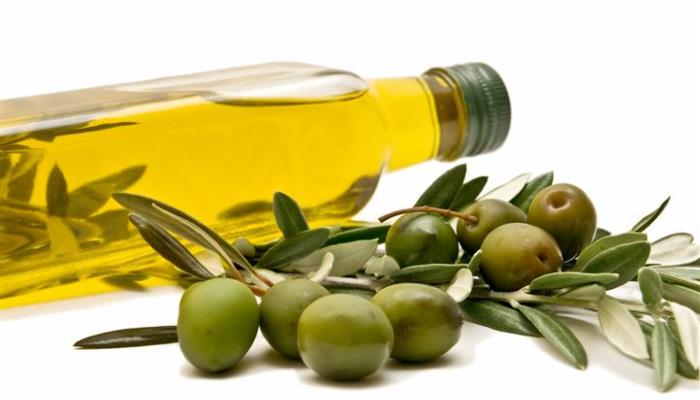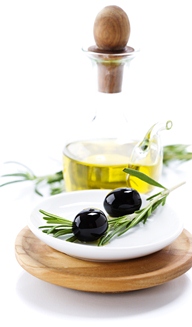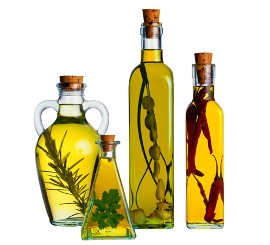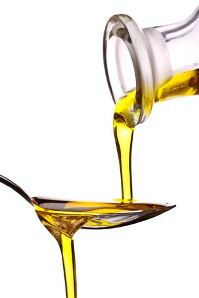
In normal layman language, olive oil is the oil prepared from ripe black olives, fruit of an evergreen tree which has been cultivated sinceover 5,000 years now. However, when it comes to defining different types of olive oil, there exist more than one set of standards.
Olive oil is known for its peculiar taste, odor and color, so peculiar that the USDA grades olive oils according to its flavor and odor. The preference for tasty and fragrant olive oil has resulted in an increase in the demand for organic olive oil which is claimed to be far superior to refined olive oil in these aspects. The global demand for organic olive oil now surpasses its supply.
Choosing extra virgin olive oil as your main source of dietary fat is good for your health. When eaten as part of a healthy, well-balanced diet – high in fruits, vegetables and wholegrain breads and cereals – olive oil is thought to have a positive impact on a person’s health. It not only contributes nutrients to the diet, but may also reduce your risk of developing chronic diseases such as cardiovascular disease and cancer. It may also increase your life expectancy.
Health benefits of olive oil's
Health benefits of olive oil include treatment for colon, breast cancer, diabetes, heart problems, arthritis, blood cholesterol, weight loss, metabolism, digestion, aging and cancer. Olive oil has been used by mankind since many centuries. It is a staple ingredient for many culinary preparations and also medicinal purposes. Medical studies suggest that olive oil is loaded with health benefits.
 The greatest exponent of monounsaturated fat is olive oil, and it is a prime component of the Mediterranean Diet. Olive oil is a natural juice which preserves the taste, aroma, vitamins and properties of the olive fruit. Olive oil is the only vegetable oil that can be consumed as it is - freshly pressed from the fruit.
The greatest exponent of monounsaturated fat is olive oil, and it is a prime component of the Mediterranean Diet. Olive oil is a natural juice which preserves the taste, aroma, vitamins and properties of the olive fruit. Olive oil is the only vegetable oil that can be consumed as it is - freshly pressed from the fruit.
Olive oil is a major component of the 'Mediterranean diet'. Research shows that people living in Mediterranean regions have reduced risk for certain chronic diseases and longer life expectancy, compared with other groups of people in the world. This is despite their high dietary fat intake, which usually makes up a large proportion of their total energy intake (more than 30 per cent).
A famous study carried out in the 1950s showed there were differences in the patterns of disease occurring among Mediterranean populations compared with those living in northern Europe and North America. This was thought to be related to diet. Over the next 30 years, investigators also found that the Mediterranean diet was associated with low rates of non communicable diseases, such as cardiovascular disease (CVD) and certain types of cancers, as well as increased life expectancy.
- A great source of antioxidants and has a high content of monounsaturated fatty acids which controls the bad cholesterol (LDL), and raising the good cholesterol (HDL). 75% of the fatty acid "building blocks" that make up olive oil come from monounsaturated fat, and only 13% from saturated fat
- A natural juice and the only vegetable oil that can be consumed as it is - freshly pressed from the fruit
- A source that strengthens omega-3's anti-inflammatory effects
- A good source of polyphenols which are potent plant antioxidants that protect against cancer-causing cell damage. To maintain olive oil's phytochemical content store it away from light and heat.
- A source of oleocanthal which is a natural compound that can help block pain-producing and inflammatory substances. Oleocanthal, taken daily, isn't the equal of ibuprofen, but is another example of how olive oil added to your diet can naturally boost your body's health.
 The beneficial health effects of olive oil are due to both its high content of monounsaturated fatty acids and its high content of antioxidative substances. Studies have shown that olive oil offers protection against heart disease by controlling LDL ("bad") cholesterol levels while raising HDL (the "good" cholesterol) levels. No other naturally produced oil has as large an amount of monounsaturated as olive oil -mainly oleic acid.
The beneficial health effects of olive oil are due to both its high content of monounsaturated fatty acids and its high content of antioxidative substances. Studies have shown that olive oil offers protection against heart disease by controlling LDL ("bad") cholesterol levels while raising HDL (the "good" cholesterol) levels. No other naturally produced oil has as large an amount of monounsaturated as olive oil -mainly oleic acid.
Olive oil is very well tolerated by the stomach. In fact, olive oil's protective function has a beneficial effect on ulcers and gastritis. Olive oil activates the secretion of bile and pancreatic hormones much more naturally than prescribed drugs. Consequently, it lowers the incidence of gallstone formation.
Olive Oil for Weight Loss
Olive oil continues to get the recognition it deserves as part of a healthy diet. Recent research from Beloit College in Wisconsin, reported that taking 1 tablespoon per day, can help those trying to lose weight, by shedding a pound per week.
Olive oil comes from the olive tree (Olea europaena) and is a traditional Mediterranean crop. It has been a staple for thousands of years and its healthy benefits are making it popular the world over.
How it Works for Weight Loss:
- as a good fat - Olive oil, a good fat, has been shown to burn off three times faster than bad fats, like the trans fats found in our commercial food products.
- oleic acid content - The oleic acid in olive oil is the component believed to give it the fat-fighting benefits. The fatty acid helps fat tissues stop absorbing fat from blood cells. It also aids the fat cells by secreting stored fat into the bloodstream so it can be burned off.
- oleic acid conversion - During digestion, oleic acid converts to OEA, a hunger-fighting hormone. OEA stimulates nerve cells and tells the brain you are full.
- increases metabolism - Researchers have found that women who had olive oil at breakfast boosted metabolism by 60% more than women who skipped the oil. It is believed that olive oil burns hot and fast - creating a metabolic boost.
Researchers in the study recommend taking a tablespoon in the morning on an empty stomach.
So now how can olive oil also help us on the outside?
For thousands of years, olive oil has been used to bathe in, cleanse hair and body and nourish skin. Here are some of the ways you can use olive oil today:
Hair Conditioner
The idea is to massage olive oil into your scalp and hair and cover it with a shower cap, or a swim cap for 30 minutes and then shampoo. My hair which has been unusually dry and some what brittle, came out shiny and softer. I will keep this up! Here a few variations:
Use approx 3 Tbsp of olive oil (decrease or increase depending on how much hair you have, and how dry or oil it is) and massage it into your scalp, hair, and add alittle extra to dry or split ends.
Mix one egg with ½ cup warm olive oil and massage in.
Mix tsp of lemon juice into the olive oil and massage in.
Skin Conditioner
Face - I used a combination of olive oil and unprocessed organic sugar. First I rubbed olive oil on my face and then put about 1 tsp. sugar in my hands and rubbed it on my face. I did this toward the end of the 30 minutes hair treatment so I could wash it off in the shower.
Hand Softener - At the same time of using it on my face, I rubbed my hands together to get the benefit of the natural oil and sugar moisturizing and exfoliation on my hands!
Feet - Rub olive oil on your feet and put some socks on to see what happens!
Elbows and other dry areas - Rub on any dry areas
Cuticle Moisturizer - Soak your cuticles in olive oil for 30 minutes
Bath Oil
Put some olive oil in a bottle, add some fragrant oil to it and next time you take a bath you will have a fragrant and moisturizing soak in the tub!
There are various grades of olive oil, and the least processed is the virgin or extra virgin and is touted to be the best choice for cooking and eating. When using it as a topical agent, the olive oil will be absorbed into my body. So I will stick with the virgin and extra virgin olive oils.
Description of Olive Oil Grades
Extra Virgin Olive Oil
This the highest grade of olive oil. It is made simply by pressing the olive fruit and must be free of faults, have a fruity character and meet certain chemical tests for acidity. It is also naturally higher in antioxidants.
Extra virgin olive oils are not all the same. Premium extra virgin olive oils are made to a higher standard give fresher fruity characters, and generally have more antioxidants and less free fatty acids.
Virgin Olive Oil
This is made the same way as extra virgin olive oil, but during the pressing process faults have occurred. The result is a natural product that, while still edible, lacks the fresh quality and character of extra virgin olive oil.
Olive Oil (refined oil)
This category includes light, extra light and pure olive oils. These oils were the result of many faults during pressing and have been refined using chemicals, heat and light. A small amount of virgin olive oil is used to give them some flavor and color.
Guide to buying olive oil
Olive oil is great stuff, flavorful, and healthy, what more could you ask for? Unfortunately, olive oil is relatively expensive in contrast with other available cooking oils, so you want to understand what you are buying, to ensure you're not paying a lot for an inferior product.
available cooking oils, so you want to understand what you are buying, to ensure you're not paying a lot for an inferior product.
There are a lot of terms floating out there, and it can be perplexing to look at an array of olive oils at the supermarket, and debate the relative merits of extra virgin oil, and first cold pressed oil, and light olive oil etc. There is a hierarchical ranking of olive oils, and the different available olive oils are suited to different types of cooking.
The most expensive, and best of the olive oils, are termed extra virgin, and might also be labeled first cold pressed. These are the most flavorful of the oils. These oils have been manufactured through a mechanical pressing of the olives, and no heat or chemicals have been added. The term "first press" means that the oil has been collected from the first pressing of a batch of olives, and this is considered to be the best of the oil. To be labeled extra virgin, the oil must also have an acidity of lower than 0.6 % and also have been judged to have good taste by panel of experts.
Pure olive oil is usually a mixture of oils collected from mechanical pressing, as well as oil collected from further pressings of the olives, that may also use the addition of chemicals and heat. This oil may have been refined to reduce unwanted or harsh flavors. The flavor of this olive oil is noticeably less fruity and flavorful than extra virgin olive oil.
There is also a product called "light" olive oil, and this refers only to the coloration of the olive oil, and although is often sold at a premium, is of no better quality than standard pure olive oil.
Pumice oil is heat and chemicaly pressed oil, has almost no taste, and is not of culinary interest. This oil should no be bought for cooking.
Basically, the more expensive extra virgin olive oil has a much more fruity and complex taste than pure olive oil, and since the yield of this type of oil from a harvest of olives is smaller, it is therefore the most expensive. This olive oil is perfect for salads or drizzling over soups, etc. but the flavorful compounds of extra virgin olive oil are destroyed by the cooking process, and as such an extra virgin olive oil is no better than a pure olive oil for cooking.
Ideally, you should buy both extra virgin olive oil, for use in cold foods, such as salad dressings, and also the cheaper pure olive oil, for use in cooking. Avoid both the "light" olive oil, and pumice oil.
Heart smart, and delicious, good olive oil always brings a taste of the Mediterranean to your table.
![]()
Disclaimer: This website is for information purposes only. By providing the information contained herein we are not diagnosing, treating, curing, mitigating, or preventing any type of disease or medical condition. Before beginning any type of natural, integrative or conventional treatment regime, it is advisible to seek the advice of a licensed healthcare professional.
Top view
Health Men
19.08.2017
What Will Happen to Your Body if
Chicken eggs possess numerous beneficial properties and can be used
+ View04.07.2017
The Best Greens To Eat
We all know that greens are important to eat and top the list when we
+ View04.07.2017
Eat Daily For Clean Arteries
The other day my dad went to see his doctor. My dad was scheduled to
+ View29.12.2016
5 Foods You Should NEVER Eat On An
Since childhood, we’ve all been told to add as many fruits and
+ ViewHealth Women
19.08.2017
What Will Happen to Your Body if
Chicken eggs possess numerous beneficial properties and can be used in
+ View04.07.2017
The Best Greens To Eat
We all know that greens are important to eat and top the list when we
+ View04.07.2017
Eat Daily For Clean Arteries
The other day my dad went to see his doctor. My dad was scheduled to
+ View29.12.2016
5 Foods You Should NEVER Eat On An
Since childhood, we’ve all been told to add as many fruits and veggies as
+ View

































